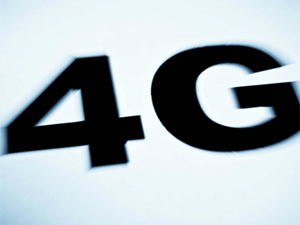



Date:13/04/16
 StarHub says it has achieved 4G speeds of 1Gbps, currently the world’s fastest 4G speeds indoors, through a collaboration with IT firm Huawei.
StarHub says it has achieved 4G speeds of 1Gbps, currently the world’s fastest 4G speeds indoors, through a collaboration with IT firm Huawei.
This speed is more than triple what is available in Singapore today, which all three telcos currently provide.
Starhub’s 4G speeds were showcased during a conference at the PAN PACIFIC SINGAPORE hotel today, using a single small cell base station, no bigger than a ream of A4 paper. Unlike traditional base stations, which can only be placed at certain locations, small cells — about one-eighth the size — can be fixed on ceilings. Because they are easier to deploy, telcos can add them to busy areas so that surfing speeds will not suffer when the area gets crowded.
Currently, however, no phones on the market can connect at 1Gbps. StarHub said it plans to deploy the service to consumers when compatible phones are available in Singapore, with some industry estimates placing that at around the second quarter of next year. 4G speeds of 1Gbps were achieved by Australian telco Telstra during a trial last year, CNET previously reported.
Telstra’s group managing director of networks, Mike Wright, told CNET it was “widely accepted” that 4G peak speeds would be in the range of 1Gbps. Beyond that, industry experts say faster speeds may only be possible on next generation 5G networks.
StarHub initially rolled out its 4G heterogeneous network infrastructure (HetNet) — that can achieve speeds of up to 300Mbps — at the Marina Bay area last year in time for major events such as F1 and the SG50 Jubilee weekends. This was accomplished using traditional mobile base stations as well as minibase stations.
The telco had said then that it would be deploying its 4G Hetnet in about 40 commercial buildings, malls and hospitals across the island by the end of this year.
Mock Pak Lum, Starhub’s Chief Technology Officer, said the company would be tracking the development of new small cell solutions “to help us enhance network quality quickly and cost-efficiently” for customers within buildings and in crowded areas.
Starhub, Huawei achieve indoor 4G speeds of 1Gbps
 StarHub says it has achieved 4G speeds of 1Gbps, currently the world’s fastest 4G speeds indoors, through a collaboration with IT firm Huawei.
StarHub says it has achieved 4G speeds of 1Gbps, currently the world’s fastest 4G speeds indoors, through a collaboration with IT firm Huawei.This speed is more than triple what is available in Singapore today, which all three telcos currently provide.
Starhub’s 4G speeds were showcased during a conference at the PAN PACIFIC SINGAPORE hotel today, using a single small cell base station, no bigger than a ream of A4 paper. Unlike traditional base stations, which can only be placed at certain locations, small cells — about one-eighth the size — can be fixed on ceilings. Because they are easier to deploy, telcos can add them to busy areas so that surfing speeds will not suffer when the area gets crowded.
Currently, however, no phones on the market can connect at 1Gbps. StarHub said it plans to deploy the service to consumers when compatible phones are available in Singapore, with some industry estimates placing that at around the second quarter of next year. 4G speeds of 1Gbps were achieved by Australian telco Telstra during a trial last year, CNET previously reported.
Telstra’s group managing director of networks, Mike Wright, told CNET it was “widely accepted” that 4G peak speeds would be in the range of 1Gbps. Beyond that, industry experts say faster speeds may only be possible on next generation 5G networks.
StarHub initially rolled out its 4G heterogeneous network infrastructure (HetNet) — that can achieve speeds of up to 300Mbps — at the Marina Bay area last year in time for major events such as F1 and the SG50 Jubilee weekends. This was accomplished using traditional mobile base stations as well as minibase stations.
The telco had said then that it would be deploying its 4G Hetnet in about 40 commercial buildings, malls and hospitals across the island by the end of this year.
Mock Pak Lum, Starhub’s Chief Technology Officer, said the company would be tracking the development of new small cell solutions “to help us enhance network quality quickly and cost-efficiently” for customers within buildings and in crowded areas.
Views: 553
©ictnews.az. All rights reserved.Similar news
- Azerbaijani project to monitor disease via mobile phones
- Innovative educational system to be improved under presidential decree
- NTRC prolongs license of two TV and radio organizations for 6 years
- Azerbaijan establishes e-registry for medicines
- Azerbaijani museum introduces e-guide
- Nar Mobile opens “Nar Dunyasi” sales and service center in Siyazan city
- International conference on custom electronic services held in Baku
- OIC secretary general to attend COMSTECH meeting in Baku
- Azerbaijan develops earthquake warning system
- New law to regulate transition to digital broadcasting in Azerbaijan
- Azerbaijani State Social Protection Fund introduces electronic digital signature
- Intellectual traffic management system in Baku to be commissioned in December
- Tax Ministry of Azerbaijan started receiving video-addresses
- World Bank recommends Azerbaijan to speed up e-service introduction in real estate
- Azerbaijan to shift to electronic registration of real estate





















